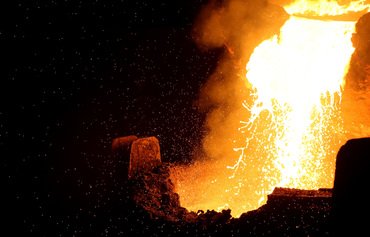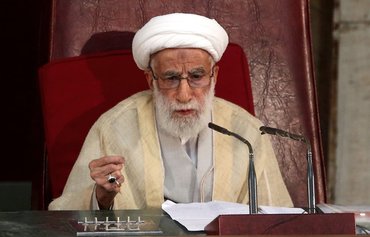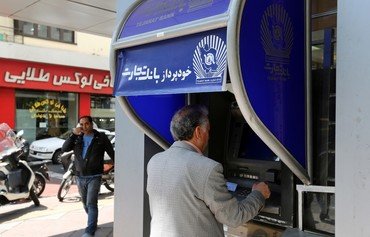The US Treasury Department on Monday (November 11th) imposed sanctions on nine members of the inner circle of Iran's Supreme Leader Ali Khamenei.
The nine individuals "are appointees of, or have acted for or on behalf of, Khamenei, the Iranian regime’s unelected Supreme Leader whose office is responsible for advancing Iran’s radical agenda", the Treasury said.
"This action seeks to block funds from flowing to a shadow network of Khamenei’s military and foreign affairs advisors who have for decades oppressed the Iranian people, exported terrorism, and advanced destabilising policies around the world," it said in a statement.
With the move, the Treasury is targeting unelected officials who surround Khamenei and are linked to a wide range of malign behaviours by the regime, Treasury Secretary Steven Mnuchin said in a statement.
![US Treasury Secretary Steven Mnuchin speaks on sanctions on Iran's Supreme Leader Ali Khamenei in the Brady Briefing Room of the White House in Washington, DC on June 24th. [Mandel Ngan/AFP]](/cnmi_am/images/2019/11/15/20927-US-Treasury-Secretary-600_384.jpg)
US Treasury Secretary Steven Mnuchin speaks on sanctions on Iran's Supreme Leader Ali Khamenei in the Brady Briefing Room of the White House in Washington, DC on June 24th. [Mandel Ngan/AFP]
"This action further constricts the Supreme Leader’s ability to execute his agenda of terror and oppression," Mnuchin said.
The targeted individuals include judiciary chief Ebrahim Raisi and Ali Akbar Velayati, a senior foreign policy adviser to Khamenei.
Velayati, who served as Iran's foreign minister from 1981-1997, is wanted in Argentina in connection with the 1994 bombing of a Jewish centre blamed on Hizbullah, which has close ties to Tehran.
Also targeted by the sanctions was Iran's Armed Forces General Staff, which is under Khamenei's command.
The sanctions mean that any US assets held by the individuals will be blocked and make financial dealings with them a crime for anyone under US jurisdiction.
The US also announced Monday it was offering a $20 million reward for information to find Robert Levinson, a former FBI agent and CIA contractor who went missing in Iran in 2007 in mysterious circumstances.
Iran hostage crisis anniversary
The move was timed to occur on the anniversary of the 1979 takeover of the US embassy in Iran, which had been a close ally of Washington under the shah.
Zealots held the diplomats for 444 days, leading the US to break off ties and souring relations to this day.
"Forty years later, the revolutionary regime in Tehran has proven, time and again, that its first acts after gaining power were a clear indication of its evil character," US Secretary of State Mike Pompeo said in a statement.
"The regime continues to unjustly detain Americans and to support terrorist proxy groups like Hizbullah that engage in hostage taking," he said.
But he said that the US sought "friendship" and a "truly representative government" with Iran's people.
"While the Iranian regime's decision to jail our diplomats has cast a 40-year shadow over our relations, the US knows that the longest-suffering victims of the Iranian regime are the Iranian people," Pompeo said.
He described Levinson as the "longest-held hostage in US history".
Levinson traveled to Iran's Kish island in 2007, and disappeared the day after he arrived. Iranian officials say they know nothing about him.
In 2011, the State Department cited reports that he may be held in the lawless border region with Pakistan.

![A Shahab-3 surface-to-surface missile is displayed next to a portrait of Iranian Supreme Leader Ali Khamenei at the Baharestan Square in Tehran on September 26th. [STR/AFP]](/cnmi_am/images/2019/11/15/20926-Iran-supreme-leader-600_384.jpg)






